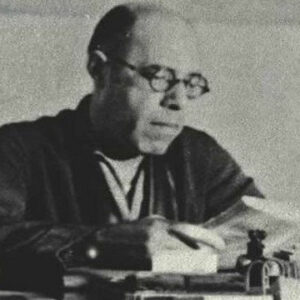Mario de Andrade was a poet, writer, critic, and photographer. Strong patriotic feelings and scholastic abilities characterize Mario Andrade’s contributions to Brazil’s twentieth-century literary scene. He introduced modernism to Brazilian poetry. His essays covered literature, music, and art history. He was a great photographer as well as a writer. His novels centered on Brazilian folklore. His works emphasized the relevance of folklore and music within the broad scope of modernist nationalism. Not only composers and musicologists of his time referred to his extensive knowledge of musicology. He was the first music scholar to introduce ethnomusicology – the study of music in its social, cultural, cognitive, material and other elements – to the country. He shifted literary works away from high-brow and formal Portuguese prose, calling him Brazil’s Renaissance man or Polymath. He produced various writings that continue to influence and inspire today’s intellectuals, scholars, artists, and authors.
Early Childhood of Mário de Andrade
Mário Raul de Moraes Andrade was born in Sao Paulo, Brazil, on October 9, 1893. Renato, his 14-year-old brother, perished in a horrible accident.
He studied piano at the Music and Drama Conservatory in Sao Paulo, spoke excellent French, and loved art, history, and poetry.
His brother’s untimely death on a football field in 1913 forced him back to Araraquara.
Despite his degree in piano performance, he chose to study music theory and singing, hoping to become a music professor.
He had developed a hand tremor that made playing the piano difficult. He started writing and was on his way to publishing his first collection of verses.
A Career of Mário de Andrade
In 1917, he published his first work under the pseudonym ‘Mario Sobral’. This early work followed a trend of developing originality in his poetic spirit.
Inspired by the French and Symbolist movement, he began experimenting with modernist themes. His early poetry was laced with liturgical references, garnering him the moniker “Pope of Brazilian Modernism.” A group of five painters and authors formed in the 1920s.
Embraced by the Brazilian spirit and heritage, he toured the country. With breathtaking photographic photographs, he began writing “The Apprentice Tourist” in 1927, a regular travelogue that transported readers into the heart of the nation.
After the 1930 Revolution, Andrade had to change his career path. He was the Conservatory’s Chair of Music and Aesthetics and began researching his textbooks. He became an ethnomusicologist and studied extensively on music theory.
From 1938 until 1941, he lived in Rio de Janeiro, teaching at the Federal University of Rio de Janeiro, before returning to Sao Paulo to finish his collection of poems.
Grandiose of Mário de Andrade
His first modernist poetry collection, Pauliceia Desvairada, was out in 1922. He was inspired to write this after seeing a sculpture of Christ as a Brazilian with braids and going into a trance. He introduced free verse and colloquial idioms to poetry in Brazil, which expanded to other parts of Latin America.
In 1928, he released Macunaima, a novel about a hero without a character that mixes Brazilian and Portuguese accents inside the magical realism he established. Fantasy and magical aspects saturate the work, yet it is founded in fact. It’s a novel of conflict and complexity, a cultural confrontation that ends in devastation.
Honors & Awards
Mario de Andrade and Emiliano Di Cavalcanti, painters, staged the first Modern Art Week in Sao Paulo in February 1922. It was his first public talk on Brazilian folk music and modernism in literature.
As a writer, singer, and academic, he dedicated his life to researching and producing theories that mirrored the Afro-Brazilian, Amerindian, and multicultural veins of his native Brazil.
Personal Legacy of Mário de Andrade
While there is no indication Andrade was overtly homosexual, colleagues and friends have made mention of it.
He had a tumultuous history with the Brazilian Vargas administration at the time of his untimely death in Sao Paulo at the age of 52.
On February 25, 1945, in So Paulo, he died of a heart attack.
His tremendous contribution to literature and the poetic movement was recognized by renaming the Sao Paulo municipal library ‘Biblioteca Mario de Andrade’ in 1960.
Trivia
Andrade’s main character in Macunaima, his flamboyant and extravagant novel, is said to have resembled him. He guarded his privacy passionately.
Estimated Net Worth
Estimated net worth of Mário de Andrade is unknown.


